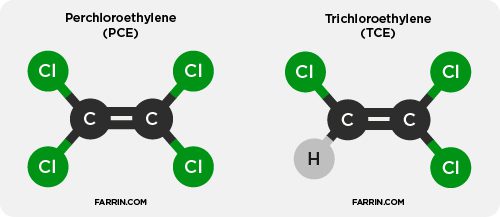Camp Lejeune's Contaminated Water May
Have Given You Bladder Cancer
It may be hard to accept that you, or a family member, may have gotten bladder cancer while working, training, or living at Camp Lejeune, but for many it’s a reality. It has been proven that three water treatment facilities supplied contaminated water to the base, and studies have shown that the contaminants in that water can be linked to several different cancers and diseases, including bladder cancer.
Camp Lejeune is a training base in North Carolina where several major Marine Corps commands and one Navy command maintain combat-ready units for expeditionary deployment for combat and humanitarian missions abroad. From 1953 through 1987, military personnel, their family members, and civilian workers on the base may have developed bladder cancer from exposure to the contaminated drinking water.
People who spent at least 30 days between August 1, 1953 and December 31, 1987 at Camp Lejeune and have been diagnosed with bladder cancer are finally able to fight for compensation for the harms they have suffered.
What Contaminated the Water at Camp Lejeune?

In addition, vinyl chloride (VC) and benzene were also found in some drinking water sources at Camp Lejeune, and these chemicals have been linked to serious health problems in veterans and their families.
Camp Lejeune Bladder Cancer Has Been Linked to PCE and TCE in Drinking Water
Mortality studies and public health studies have confirmed the linkage between bladder cancer and Camp Lejeune water contamination, and the Veterans Administration has stated that bladder cancer is one of eight “presumptive conditions” for Camp Lejeune water contamination.
The Agency for Toxic Substances and Disease Registry (ATSDR) found that there was sufficient evidence for causation of bladder cancer in people exposed to the PCE detected in the water at Camp Lejeune in its ATSDR Assessment of the Evidence for the Drinking Water Contaminants at Camp Lejeune and Specific Cancers and Other Diseases. In the ATSDR Morbidity Study of Former Marines, Employees, and Dependents Potentially Exposed to Contaminated Drinking Water at USMC Base Camp Lejeune, the ATSDR concluded that:
- Exposure to both TCE and PCE was associated with increased risk for bladder cancer and kidney disease in civilian employees
- Exposure to PCE was associated with increased risk for bladder cancer and kidney disease in Marines
We understand that you may not know how to prove that you, or your loved one, developed bladder cancer by being exposed to the contaminated water at Camp Lejeune. Perhaps you are uncertain of the dates spent at Camp Lejeune or can’t prove that you, or your loved one, were actually stationed at Camp Lejeune. We still may be able to help. Call us at 1-866-900-7078.
Bladder Cancer Symptoms
People who lived or worked at Camp Lejeune and were exposed to contaminated water may experience the following possible bladder cancer symptoms outlined by the American Society of Clinical Oncology (ASCO):
- Blood or blood clots in the urine
- Pain or burning sensation during urination
- Frequent urination
- Feeling the need to urinate many times throughout the night
- Feeling the need to urinate, but not being able to pass urine
- Lower back pain on one side of the body
If you have these symptoms and have been diagnosed with bladder cancer, contact us today for a free and confidential case evaluation. We can help you fight for compensation for the harms and losses this illness has caused you.
Learn More: What Am I Owed?
The Law That Enables You to Fight for Compensation for Being Harmed by the Camp Lejeune Water Supply
On August 10, 2022, President Biden signed into law the Honoring Our Promise to Address Comprehensive Toxics (PACT) Act of 2022, which makes it possible for the people who lived and worked at the Camp Lejeune Marine Corps base camp to seek compensation if they have been diagnosed with bladder cancer from the contaminated water at camp. However, the Act only gives victims two years to build their case and submit their Camp Lejeune claims.
What Should I Do if I Think My Bladder Cancer Was Caused By the Water at Camp Lejeune?
You can file an administrative claim for compensation, but you may not know what records and proof you’ll need, and you may be denied compensation or receive an unsatisfactory offer. An attorney can help.
How? By listening closely to your story, or that of your loved one. By investigating all the details, and collecting medical records, evidence, and testimony to build your claim. By knowing and following procedures so that your claim is filed correctly and on time. And by representing you in court, if needed.
We can help you seek just compensation for your bladder cancer. Call 1-866-900-7078 for a free case evaluation today.
We Are Here to Help Those Who Have Developed Bladder Cancer Caused by Camp Lejeune Water Contamination
We are currently helping hundreds of veterans and their family members with their Camp Lejeune water contamination claims for compensation. Our law firm has multiple offices in the U.S. Eastern District Court of North Carolina, where the Pact Act requires that Camp Lejeune claims be filed. The Act also requires that an attorney representing a Camp Lejeune claimant must be licensed to practice law in North Carolina or sponsored by an attorney who is. Our experienced North Carolina trial attorneys are ready to help you.
Our law firm also has extensive experience fighting for the rights of others. In one of the largest civil rights cases in U.S. history, we reached a $1.25 billion settlement for 15,000+ Black farmers who had been discriminated against by the government.3 Currently, we are fighting 3M for veterans suffering from hearing loss in one of the U.S. largest multi-district litigations. We are not afraid to take on large organizations and entities.
If you, or a loved one, have been diagnosed with bladder cancer after spending time at the Camp Lejeune Marine Corps base, this new law allows you to seek compensation. Contact us online for a free case evaluation.
Even if you are unsure of the exact time spent at Camp Lejeune, we may be able to help you, or your loved one, seek compensation for your bladder cancer. Contact us at 1-866-900-7078 today.
FAQs About Bladder Disease and Camp Lejeune Water Contamination
What Kind of Compensation Can I, or my Family Member, Expect?
If you believe your bladder cancer diagnosis was caused by exposure to the water at Camp Lejeune, you can seek compensation for the following types of harms and losses:
- Medical expenses
- Ongoing health care needs
- Lost wages
- Pain and suffering
- Loss of financial support due to the death of a family member
How Do I Prove That I Had Significant Exposure to Contaminated Water at Camp Lejeune?
It may be helpful to point to a cancer incidence study that links bladder cancer to Camp Lejeune water contamination. An experienced attorney can help you by making sure that your claim contains relevant facts, such as the timing of the diagnosis of your illness and the timing of your stay at the base.
To prove you had significant exposure, you must show that you lived or worked on base for at least 30 cumulative days between January 1, 1953 and December 31, 1987. An attorney can help you gather evidence, such as personnel records, to try to prove you meet the criteria and can also consult with appropriate medical professionals who may be able to deliver expert testimony to show your injury was caused by exposure to contaminated water at Camp Lejeune.
Will This Claim Affect My VA Benefits?
The mission of the Department of Veterans Affairs is to provide care for those “who shall have borne the battle” and for their families, caregivers, and survivors. The PACT Act expands and extends eligibility for VA disability benefits and healthcare for veterans with toxic exposures. VA Secretary Denis McDonough encouraged veterans and their family members or survivors to apply for benefits by filing a claim.
“Once the President signs this bill into law, we at VA will implement it quickly and effectively, delivering the care these veterans need and the benefits they deserve,” McDonough said in a statement to the press.



